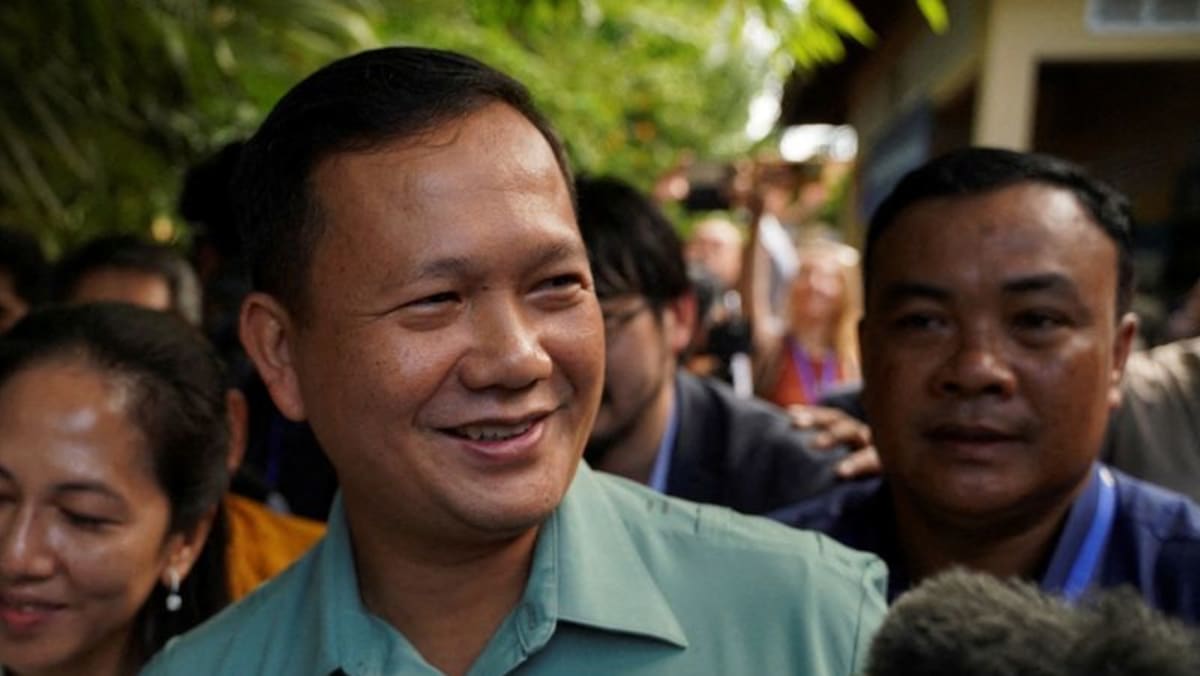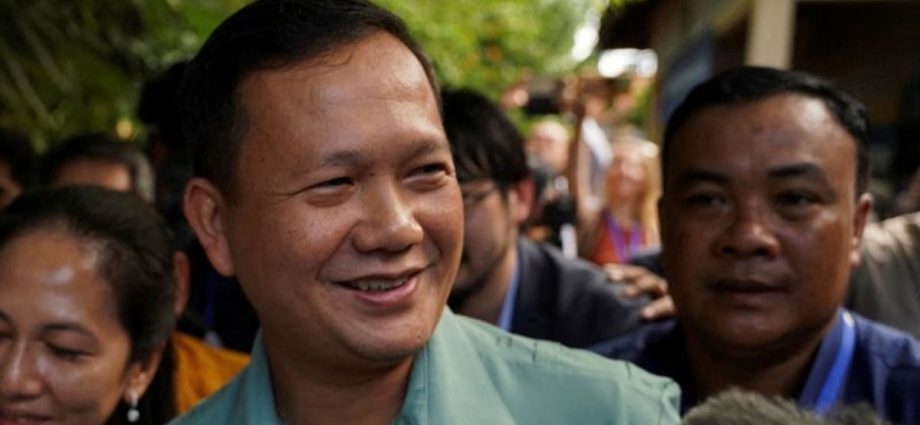
WASHINGTON: The incoming hereditary ruler of Cambodia, a country Washington is keen to pull out of Beijing’s orbit, could meet CEOs of US firms interested in investing there in New York next month, the head of the US business lobby for Southeast Asia told Reuters.
Cambodia’s long-ruling Prime Minister Hun Sen has said he will hand power to his Western-educated son, Hun Manet, 45, this month, after the incumbent Cambodian People’s Party (CPP) swept a July general election in which it was virtually unopposed.
“We hope to host (Hun Manet). We hope to see if there’s a way to start a new chapter” between the Washington and Phnom Penh, Ted Osius, president of the US-ASEAN Business Council said on Thursday.
“It’s not an entirely new chapter (but) he’s not his dad, he’s a different person. So maybe there’s some opportunities here.”
Talks were underway for a hotel reception around the UN General Assembly (UNGA) meetings held in September, said Osius, a former career diplomat who served as America’s ambassador to Cambodia’s neighbor Vietnam.
“(We’ll) bring in CEOs, high-level execs who are interested in Cambodia and might want to get a view of the new guy. And I think he would welcome that.”
Washington, which has over the years denounced Hun Sen’s authoritarian and anti-democratic moves, has said the elections were “neither free nor fair.”
Hun Manet, educated at Western institutions including the West Point military academy in the United States, would not want to be “owned lock stock and barrel” by another country, Osius said, a reference to Cambodia’s close ties to US rival China.
Cambodia’s decision to allow China’s navy to develop its naval base at Ream has upset Washington and neighbors worried it will give Beijing a new outpost near the contested South China Sea.
Osius said the US approach to Cambodia had been “punitive” and Washington should look for opportunities for dialogue.
“Better for (Hun Manet) if there if he’s got some strategic options, and that could mean improving ties with us,” he said.
A spokesperson for the US State Department said it had no specific comment on Hun Manet’s future leadership, but the formation of a new government was an opportunity for the CPP to improve Cambodia’s international standing.
Ways it could do this included “restoring genuine multi-party democracy, ending politically motivated trials, reversing convictions of government critics, and allowing independent media outlets to reopen and function without interference.”
Asked if Hun Manet and US officials could meet on the sidelines of UNGA, the spokesperson added: “We are still determining schedules for US principals and do not have any further information to share.”
Cambodia’s Washington embassy did not immediately respond to a request for comment.

